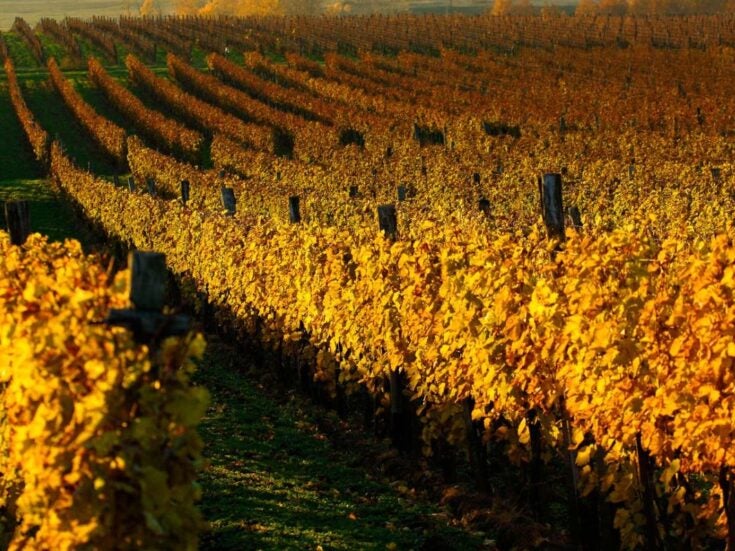
Having mortgaged its future on becoming a major business and tourism centre, Dubai now resembles a ghost town. Sophie McBain examines whether the emirate has what it takes to bounce back
ON 25 NOVEMBER 2009, a day commemorated in Dubai as 25/11, like 9/11 in New York and 7/7 in London, the state-owned conglomerate Dubai World asked for a delay in the repayment of $26 billion of debts. It took several weeks for Abu Dhabi to bail out its wayward neighbour, but by then the damage had been done. The already faltering economy imploded as confidence gave way to panic.
Dubai was always meant to be big. In 2007 Dubai’s ruler Sheikh Mohammed bin Rashid al Maktoum said that by 2015 it would be a city to rival Córdoba or Baghdad, two great cultural and political centres of medieval Islam. The city he built was more a testament to human folly than a beacon of Islamic enlightenment, but his enthusiasm was contagious, careering from one project to the next.
When the economy collapsed, Sheikh Mohammed’s ambitions seemed fundamentally misguided, but now tentative signs of an economic recovery have made the story of Dubai harder to write. In the Disney retelling are the people of Dubai once again living happily ever after, trading by day and partying by night? Or does Dubai offer a cautionary tale of the dangers of building palaces on sandy foundations?
Looking at Dubai through post-recession spectacles, it is easy to rubbish its achievements, but it was never blessed with the vast oil reserves of neighbouring Abu Dhabi; although the UAE has the fifth-largest oil reserves in the world, Abu Dhabi controls 95 per cent of them. Dubai quickly realised the need to diversify away from oil and focused on expanding as a trade centre, a financial and business hub and a tourist destination.
It was remarkably effective, and today only 5 per cent of Dubai’s GDP comes from oil, making it ‘the most successful diversification story in the last 100 years’, according to Kamran Butt, head of Middle East and India private banking equity research at Credit Suisse. This is no small feat — every oil-rich country in the region is haunted by the prospect of life after oil, but few have managed to do anything practical about it.
To develop this non-oil economy, Dubai had to borrow heavily. A Credit Suisse report in January placed Dubai’s debt at $129 billion but added that the real figure could be even higher. Dubai’s reluctance to disclose the full extent of its liabilities is a cause for concern. Although a default seems unlikely, further debt restructuring could still be on the horizon and the popular protests across the region mean that investors are feeling jittery. In response to regional unrest, credit default swaps on Dubai’s debt rose 30 basis points to 445 in early March. This is a considerable improvement on late 2009, when they stood at around 650 basis points, but the returning investor confidence is brittle.
ULTIMATELY, THE ONLY way to clear Dubai’s debt is by stepping up economic activity. The city’s real-estate sector is still weighing down growth. A Deutsche Bank report published earlier this year found that property prices had dropped an average of 60 per cent since their peak, and in the near term things look likely to get worse rather than better. The property market is hugely oversupplied, but with construction costs falling many developers are finding it cheaper to continue building rather than pull out of deals.
Whether they are motivated by optimism, blindness or contractual obligation, ongoing construction work will only push up supply and lower prices even further. According to property broker Jones Lang LaSalle, office vacancy rates were 41 per cent as 2010 ended and may exceed 45 per cent over 2011. In a very Dubai twist, some sellers are offering exotic incentives to buyers and agents who shift their property, but the seller who offered a free Maserati with his $900,000 villa still couldn’t tempt buyers.
Optimists see the real-estate crash as a painful but necessary step towards the market maturing. ‘Dubai hasn’t suffered a setback of any kind,’ Butt explained, ‘so this is all part and parcel of the learning curve for the economy.’ Steps have been taken to protect investors, such as ensuring that advance payments on buildings are linked to construction. A repeat of the double-digit returns of pre-recession Dubai is unlikely, but with strengthened legislation and more prudent lending the emirate hopes to foster stable, albeit slower growth.

‘If I were a leader in the UAE I’d be quietly confident about the economic recovery,’ says Nicholas Maclean, managing director of property consultancy CB Richard Ellis Middle East. He believes that property prices for the best locations are near the bottom but locations further from the city centre will continue to fall. Dr Christopher Davidson, author of Dubai: The Vulnerability of Success, disagrees. ‘The white economy is so bogged down by the over-supply in real estate that half its GDP will be wiped out,’ he says. According to Davidson, the real estate sector will not bottom out for five years, while the rest of the economy will decline for another three.
Illustration by Giovanni da Re
DESPITE THESE WORRIES, Dubai International Financial Centre, its purpose-built financial free zone, is showing signs of growth. In 2010, 792 new companies entered the DIFC, representing an annualised growth rate of 19 per cent. Dubai appears serious about strengthening its legislation, with one businessman at DIFC reporting that, to maintain Dubai’s ‘whiter than thou’ image, the process for getting a licence at Dubai Financial Services Authority was harder than obtaining one from the Financial Services Authority in the UK.
But despite the stringent regulations, the DIFC has made it easier and cheaper to set up shop, with rents cut in late 2010 and visa and registration fees reduced. Together with growing political instability in other regional financial hubs, this could bring more business to Dubai in the short term.
‘The party hasn’t stopped,’ one visitor says, if you can believe it. Dubai’s bars and restaurants haven’t got any cheaper, and its tourism department reported that 8.6 million visitors stayed in the city in 2010, a 10 per cent increase on the previous year. Occupancy rates in hotels have rebounded, but the average daily rate has fallen by almost a third, says Peter Goddard, managing director of hospitality consultancy TRI Hospitality.
If the possibility of a bargain isn’t sufficient incentive, the new locations may be. In the aftermath of Dubai’s greatest economic crisis to date, visitors may begin to wonder if it is (finally) growing up. Once renowned as a playground for footballers’ wives and glamour models, the city is now focusing on established and respected global brands, such as Grosvenor, Raffles and Ritz-Carlton.
Dubai is getting serious about food, too. ‘Dubai’s culinary scene is expanding at a rapid rate, with more and more high-profile restaurant names announcing their decision to enter the market in recent months, such as Zuma, La Petite Maison and Hakkasan,’ said David O’Brien, operations manager at Caprice Holdings Middle East. This spring, the Ivy will join its sister restaurant the Rivington Grill in Dubai.
THE BIGGEST CHANGE since the crisis, however, has been political. In accepting a bailout from Abu Dhabi, Dubai relinquished its autonomy to the more sober neighbouring state. In a symbolic humbling gesture, the tallest tower in the world was renamed the Burj Khalifa in honour of Abu Dhabi’s leader and the president of the UAE.
Behind the scenes, Abu Dhabi has quietly flexed its muscles. A spat between the UAE and the makers of BlackBerry over government access to users’ messages highlighted Abu Dhabi’s security services’ desire to exert control in Dubai, even if this comes at the expense of business. It also provided a timely reminder that for all the 21st-century gloss and Vegas glitz, Dubai’s ruling monarchy is almost 18th-century in its views on democracy and freedom of speech.
Dictatorships are rarely good for business. When the state doesn’t tolerate any form of dissent, serious economic problems can easily be overlooked. In 2009 a new media law was drafted to ban criticism of the economy. ‘It is easy to see how a bubble develops when the state doesn’t tolerate criticism,’ Davidson says. The fact that anyone who tried to write about Dubai’s property bubble was threatened ‘was always obvious.’
The UAE is not immune to the wave of democratisation sweeping through the Arab world. Outside the metropolises of Dubai and Abu Dhabi, UAE citizens feel left out and resentful, having benefited little from the richer emirates’ success. The country has an estimated 100,000 bidoon, or stateless people, whose families have lived in the UAE for over a century and yet have no rights of citizenship. With sufficient media attention, their protests may yet gather momentum.

It is easy to conclude that Dubai has emerged from its decades of excess and its subsequent meltdown with a new economic maturity, an awareness of its own limitations and a sense of humility. But if one lesson can be drawn from the events of 2009-10, it’s that if you look beyond the shining façades and the five-star finish, Dubai’s political and legal system is as dark and murky as ever. And that could yet derail its shaky and lopsided recovery.
A suite at Raffles Dubai
Sling For Your Supper at Raffles
THE MODERNIST, PYRAMIDAL structure of Raffles Hotel — inspired by Egypt, although Giza is a long way away from downtown Dubai — combines the solid reputation of the luxury Raffles brand with a very Dubai love for grandeur. The hotel’s elegant interiors combine elements of Middle Eastern and Asian design, while features such as its book-lined, library-style lobby aim to make guests feel at home and well-read.
The hotel offers some of the largest rooms in the city, eight bars and restaurants — including the award winning Noble House restaurant and Fire&Ice grill — and botanical gardens, right in the centre of Dubai. The ‘Dubai Sling’ has been added to the list of Raffles’ signature cocktails, and from the Red Lounge.Terrace (a very Dubai approach to punctuation), it can be enjoyed with a view of the city’s skyscraper pierced skyline.
But the hotel chain has always insisted that its intuitive and unobtrusive service makes it stand out from the crowd, even in Dubai’s saturated luxury market, and that this personal touch has allowed it to weather the emirate’s worst recession to date. This year it launched its ‘Raffles Suite Moments’ experience, including a complementary spa treatment and fine dining options, and its ‘Suite Stay on Top’ package, which will treat visitors to a private helicopter ride over Dubai.
It has also always been quick to adapt to guests’ changing appetites, and in Dubai this has meant focussing on refreshing dining options and opening a new club, People by Crystal, recently voted the best nightclub in Dubai.
On a global scale, 2010 has been a ‘strong year’, Raffles says. Almost half their hotels are in Asia, which saw a double-digit increase in tourist arrivals last year. In the last twelve months, three new Raffles resorts have entered the market, in three very different locations.
In August Raffles Makkah opened, catering to Muslims planning to complete their pilgrimage in style. Just one month later, Raffles unveiled the newly renovated Le Royal Monceau-Raffles Paris following a two-year transformation led by Philippe Starck. And early this year, the first Raffles resort in the Indian Ocean opened. The Raffles Praslin Seychelles offers 86 immaculate villas stretching along the island’s beaches.
So where next for the Singapore Sling? In the next three years new resorts are planned in the Maldives, Hainan in China, Jakarta and Makati.






